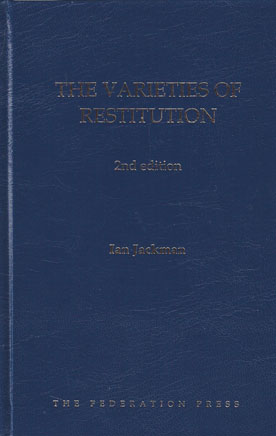
Over the past decade, the High Court has repeatedly rejected the notion that there is a unifying principle of unjust enrichment at the plaintiff’s expense, in contrast to the position in the UK.
This book provides a vigorous and sustained justification for the Australian position, and demonstrates that the law in the UK has generated more fictions than it was ever thought to abolish.
The law of restitution is shown to comprise several fundamentally distinct legal concepts which fill gaps in the law of contract and tort, and which have nothing in common beyond the historical accident that they arose out of the action of indebitatus assumpsit.
These are (i) the recovery of non-voluntary payments (by mistake, duress, undue influence, unconscionable dealing and total failure of consideration); (ii) remuneration for goods or services requested by the defendant in circumstances indicating a promise to pay for them; and (iii) the protection of certain facilitative institutions of private law (such as private property and fiduciary relationships).
The book staunchly defends the traditional common law approach of analysing legal principles by the empirical method of treating like cases alike, rather than by derivation from supposedly unifying theories.
This edition updates the first edition, which was published in 1998, in the light of almost 20 years of case-law and academic debate. It also adds a separate chapter dealing with the history of the law of restitution and why it matters.